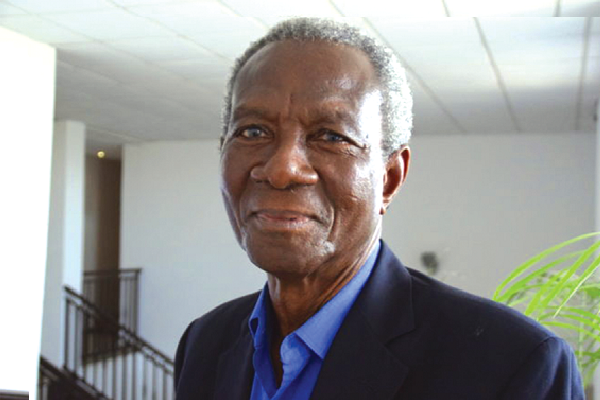
‘Name and shame’ bad gas price negotiators - Kwame Pianim to govt
A renowned economist, Mr Kwame Pianim, has called on the government to name and shame all persons who negotiate what he described as bad gas price deals on behalf of the country.
That, he said, would send strong signals to negotiators to position themselves well and negotiate for better deals in the best interest of the country.
He said such deals should not erode gains made by the sector but rather help make the local gas sector competitive in the sub-region.
He said ultimately, consumers were the ones who bore the brunt of bad negotiations because they were forced to pay unrealistic tariffs for power.
It was, therefore, important that in the drive to use gas for power generation, the issue of negotiating for gas prices needed to be critically considered.
In an interview at the just-ended 2018 Ghana Gas Forum, Mr Pianim, who was also the Chairman for the forum, said the issue of gas pricing and those who negotiated for the price for the country was very important.
“We want the consumer to pay a cost-reflective tariff so that you and I can be willing to pay for the right cost of electricity.
If the price is not negotiated properly, it means we are burdening the Ghanaian consumer and industry with non-competitive prices,” he said.
Competitive pricing
Mr Pianim said to build a sustainable gas-to-power sector and to leverage it for industrialisation and not just as a commodity to sell, there was the need to have competitive prices.
Ceding power generation to gas means that there will be a shift from the traditional hydro and thermal sources to increased use of gas, especially at a time when the government is driving its industrialisation agenda.
“The most important thing is that the pricing has to be competitive.
If energy is very important and the cost structure of the industry is not good, it means you are making Ghanaian industries uncompetitive vis-a-vis other West African or global producers,” he said.
A Deputy Minister of Energy, Dr Mohammed Amin Adam, earlier at the forum, said competitive pricing of gas had become a major concern because accelerated industrialisation
required cheaper inputs.
He said gas-to-power projects, industrial heating, petrochemical and agrochemical projects all required competitive gas markets.
“For this reason, the Public Utilities and Regulatory Commission (PURC) has already reduced the delivered price of domestic gas from US$8.8 to US$7.29 per million British Thermal Units (MMBTU) earlier this year for the power sector and intends to keep it competitive in the future,” he said.
He added that for the reduction to be sustainable, there was the need to find innovative ways to keep the cost down, while encouraging investment and competition in the construction, operation and maintenance of gas supplies and associated infrastructure.
2018 Gas Forum
The fifth edition of the annual Ghana Gas Forum (GGF 2018) took place in Accra on September 25 and 26, 2018.
Organised by The Gas Consortium, the 2018 edition was on the theme: “Driving Ghana’s Downstream Gas Utilisation”, and performed a critical analysis of policy plans vis-à-vis the country’s goal of leveraging its gas resources for industrialisation.
forum provided the platform for key industry players, including the Ministry of Energy, Ghana National Gas Company and Ghana National Petroleum Corporation, to engage in policy discussions.
It also helped reflect on the vast development opportunities associated with the downstream sector, specifically the petrochemicals industry, in support of the call for a diversified energy sector via the close linkage of the gas sector and the broader economy. — GB